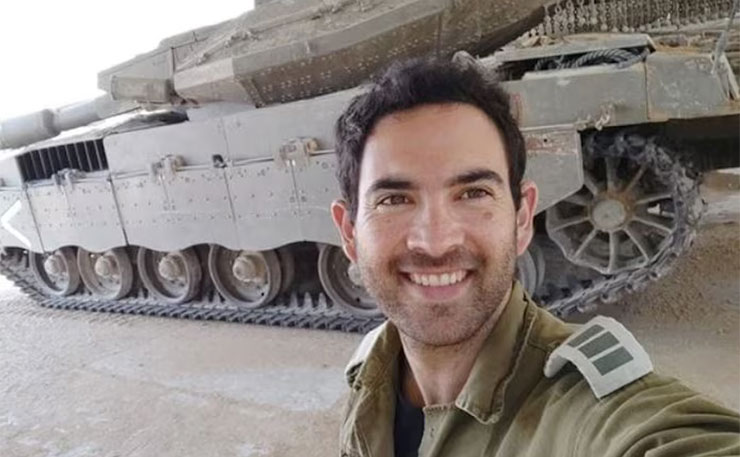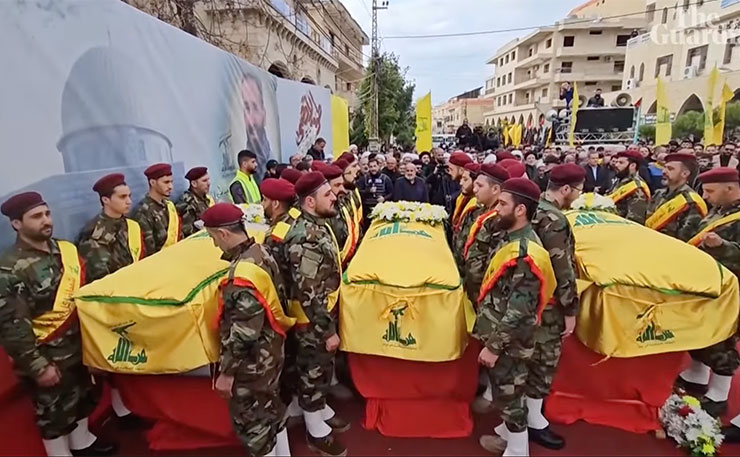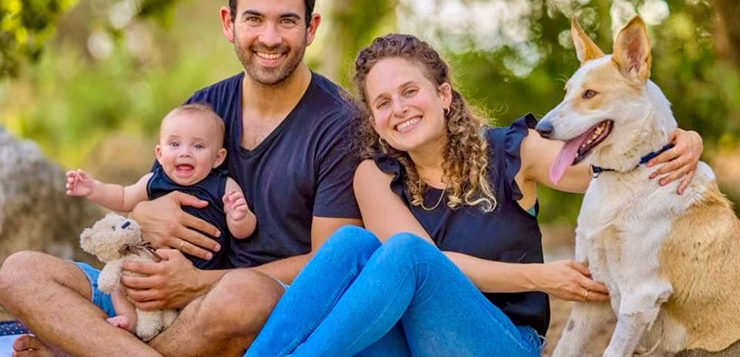A 32-year-old Victorian man has become the first Australian to die for Israel as its assault on Palestinians in Gaza – a genocide, according to charges filed in the International Court of Justice this week by South Africa – stretches past its third month.
Lior Sivan, a reservist in the Israel Defence Force (IDF), was killed on December 19 in southern Gaza. He was born in Melbourne to South American parents, before he moved to Israel as a toddler, and held duel Australian-Israeli citizenship.
Mr Sivan’s rank has been reported as ‘captain’ by Australian media, but Haaretz newspaper in Israel lists his rank as ‘Major’.
Maj Sivan was called up to the IDF immediately after the October 7 attack by Hamas on southern Israel. He was serving as a tank commander when he was reportedly killed in an ambush by Hamas fighters.
An ABC interview with Maj Sivan’s father, Dan, claimed his son saved the lives of other IDF soldiers before he was killed.
“He was in one tank and another tank was alongside his and the tank’s driver told him that he could see that a Hamas [fighter]was putting an explosive device on the tank next to theirs,” Sivan’s father told the ABC.
“Instead of trying to manoeuvre and shoot him from inside the tank, he didn’t think of his wife and his son. He was a hero. He opened the hatch and rose up to shoot him. But it was an ambush and someone hiding behind a building launched something at him.
“He was killed immediately. But he saved the four men in the other tank and possibly the other three in his own tank.”

Maj Sivan served in the Harel Brigade, one of the most infamous units in the IDF and widely acknowledged as having been responsible for some of the worst atrocities perpetrated by Israel during the 1947 attack on Palestinians. It is particularly noted for its ethnic cleansing in southern Palestine.
Maj Sivan was buried on December 26 in the military section of the cemetery in Beit Shemesh, his home community west of Jerusalem. Beit Shemesh, with a population of more than 140,000, is located within Israel proper – it is not one of the 150 illegal settlements and 128 outposts built on stolen Palestinian land.
Maj Sivan’s death is one of hundreds inflicted by Hamas during the conflict. Around 400 Israeli soldiers and at least 59 police were killed in the initial Hamas attack, which also saw the deaths of around 800 civilians, including 36 children.
Since the start of Israel’s invasion of Gaza on October 27, the IDF has confirmed the deaths of at least another 172 soldiers. Around 30 of those have been killed by friendly fire, in addition to three Israeli soldiers who were being held captive by Hamas. The three men had escaped and had presented themselves to Israeli forces with a white flag. All three were then gunned down.
Another 937 IDF soldiers have been wounded — 211 of them seriously.
In response, Israel has killed more than 22,000 Palestinians, including around 9,000 children, with at least another 50,000 people injured. No reliable figures are available on the total number of Palestinian combatants killed in the fighting, however estimates of the Palestinian civilian casualty rate range as high as 90 per cent.
Outside Gaza, more than 320 Palestinians have been killed in the West Bank by Israeli soldiers and police, and at least seven Palestinians have died in custody.
Maj Sivan is the second Australian known to have been killed in the conflict in Israel-Palestine, and the fourth Australian altogether.
Two Sydney brothers – Ibrahim Bazzi and Ali Bazzi – were killed last week after Israel aerial bombed a neighbourhood in Southern Lebanon last week. Ibrahim’s wife, Shorouq Hammoud, was also killed in the strike. Lebanese political organisation Hezbollah – close allies of Hamas – later confirmed Ali was a fighter for their paramilitary wing, the Jihad Council.

The men were believed to be in Lebanon to collect Ibrahim’s wife, who had recently been granted a visa to move to Australia.
Galit Carbone, a 66-year-old woman from Sydney died in the initial attacks by Hamas at Be’eri Kibbutz, a community of around 1,000 people just five kilometres from the border with Gaza. Ms Carbone moved to Israel in her teens.
At least 130 people from Be’eri are believed to have died in the initial assault, and the subsequent attempts at rescue by Israeli security forces. Israeli witnesses have confirmed that in addition to killing Hamas fighters, IDF forces fired on hostages, including a tank assault on a home in which at least 14 Israeli captives were being held, some of them children. Only one survived the Israeli attack.
Hamas’ assault on the Kibbutz, which involved at least 70 fighters, plus fighters from the Democratic Front for the Liberation of Palestine (DFLP), was reportedly led by Moathe Abed al Rahman, a commander of the Nuseirat Battalion within the Izz ad-Din al-Qassam Brigades, the armed wing of Hamas. The battalion is named after the Al-Nuseirat Refugee Camp in Central Gaza, home to more than 30,000 Palestinians.
Abed al Rahman was reportedly killed several weeks later in Gaza during Israeli air strikes.
In other news, Israel bombed Beirut this week, killing seven including a senior Hamas official, Saleh al-Arouri. And overnight, more than 100 people were reported killed in a series of explosions in Iran, during commemorations to mark four years since the United States assassinated Qassem Soleimani, a revered Iranian general with the Islamic Revolutionary Guard Corps.
Israel has not claimed responsibility for the bombing, and the United States has denied any involvement.
Donate To New Matilda
New Matilda is a small, independent media outlet. We survive through reader contributions, and never losing a lawsuit. If you got something from this article, giving something back helps us to continue speaking truth to power. Every little bit counts.




